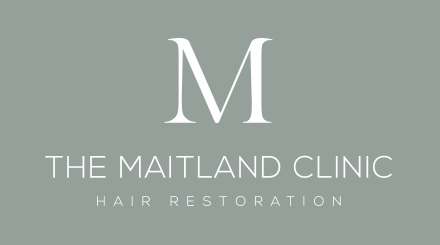DHI
Valued member
A. Conditions that are considered contraindications for the DHI hair restoration procedures
¢ Diffuse alopecia that can be either idiopathic or due to a local scalp skin problem or general health problem
¢ Donor are with more than 15% hairs in telogen phase
¢ Donor area of low density at 70hairs/cm2
¢ Some types of alopecia (alopecia totalis, mucinosa)
¢ Keloid scar formation
¢ Alopecia areata that is in progress without steady in time appearance
¢ Immunological problems
¢ Patients under treatment with cytostatic medication either locally on the scalp or systematic
¢ Patients who suffer from connective tissue disease like lupus erythematosus, rheumatoid arthritis, scleroderma etc. in a serious stage
¢ Chronic Sevier heart, renal or hepatic failure
¢ Patients who wear wigs in a steady basis to cover their extended alopecia
¢ Extended active dermatitis on the scalp, bacterial or fungal
¢ Cutaneous lichen
¢ Extended psoriasis in elevation
¢ Systematic medication that provoke hair loss as a side effect
¢ Serious metabolic problems or nutritional problems
¢ Serious hormonal problems like poly cystic ovaries syndrome
NOTE:
In case of diffuse alopecia the most usual examination blood tests that we recommend the patient to do are the followings: Ht (hematocrit) and Hb (hemoglobin),Fe (iron) in plasma, ferritin, total proteins, albumins, and hormones of the thyroid gland (TSH, T3 and T4).
B. Conditions that require the patient s personal doctor s medical note in terms of alterations of his own systematic medication as well as of the DHI medication post procedurally (duration, kind and dose)
¢ Renal or liver deficiency
¢ Adrenal problems
¢ Immunological problems
¢ Neurological or psychological problems
¢ Heart problems especially when past heart-operated, arrhythmias, valve problems, or coronary disease, or under steady anticoagulant medication
¢ Patients who have undertaken organ transplantation (especially kidney)
C. Health pathological conditions in which there may be lower than the expected hair growth percentage.
¢ Diabetes especially of type 1 (under insulin) due to peripheral angiopathy.
¢ Local scar tissue due to diminished blood supply
¢ Traumas nearby the alopecia area due to possible problematic blood circulation
¢ Elder people due to possible arteriosclerosis
¢ Very heavy smokers or people with serious respiratory problems/deficiency due to low oxygen saturation thus low oxygen supply to the tissues
¢ Serious inflammation at the recipient area that can lead either to late final hair growth or to final lower percentage of hair growth
¢ Conditions that may affect the skin like sarkoidosis, or connective tissue diseases like lupus erythematosus, rheumatoid arthritis, scleroderma etc. that are rather under control
¢ Alopecia areata that presents a steady in size local appearance for at least one year
¢ Diffuse alopecia that can be either idiopathic or due to a local scalp skin problem or general health problem
¢ Donor are with more than 15% hairs in telogen phase
¢ Donor area of low density at 70hairs/cm2
¢ Some types of alopecia (alopecia totalis, mucinosa)
¢ Keloid scar formation
¢ Alopecia areata that is in progress without steady in time appearance
¢ Immunological problems
¢ Patients under treatment with cytostatic medication either locally on the scalp or systematic
¢ Patients who suffer from connective tissue disease like lupus erythematosus, rheumatoid arthritis, scleroderma etc. in a serious stage
¢ Chronic Sevier heart, renal or hepatic failure
¢ Patients who wear wigs in a steady basis to cover their extended alopecia
¢ Extended active dermatitis on the scalp, bacterial or fungal
¢ Cutaneous lichen
¢ Extended psoriasis in elevation
¢ Systematic medication that provoke hair loss as a side effect
¢ Serious metabolic problems or nutritional problems
¢ Serious hormonal problems like poly cystic ovaries syndrome
NOTE:
In case of diffuse alopecia the most usual examination blood tests that we recommend the patient to do are the followings: Ht (hematocrit) and Hb (hemoglobin),Fe (iron) in plasma, ferritin, total proteins, albumins, and hormones of the thyroid gland (TSH, T3 and T4).
B. Conditions that require the patient s personal doctor s medical note in terms of alterations of his own systematic medication as well as of the DHI medication post procedurally (duration, kind and dose)
¢ Renal or liver deficiency
¢ Adrenal problems
¢ Immunological problems
¢ Neurological or psychological problems
¢ Heart problems especially when past heart-operated, arrhythmias, valve problems, or coronary disease, or under steady anticoagulant medication
¢ Patients who have undertaken organ transplantation (especially kidney)
C. Health pathological conditions in which there may be lower than the expected hair growth percentage.
¢ Diabetes especially of type 1 (under insulin) due to peripheral angiopathy.
¢ Local scar tissue due to diminished blood supply
¢ Traumas nearby the alopecia area due to possible problematic blood circulation
¢ Elder people due to possible arteriosclerosis
¢ Very heavy smokers or people with serious respiratory problems/deficiency due to low oxygen saturation thus low oxygen supply to the tissues
¢ Serious inflammation at the recipient area that can lead either to late final hair growth or to final lower percentage of hair growth
¢ Conditions that may affect the skin like sarkoidosis, or connective tissue diseases like lupus erythematosus, rheumatoid arthritis, scleroderma etc. that are rather under control
¢ Alopecia areata that presents a steady in size local appearance for at least one year
Last edited by a moderator:


























